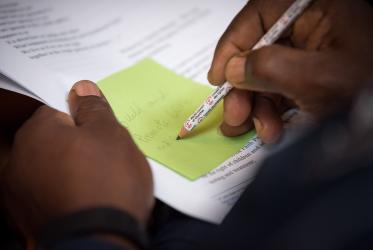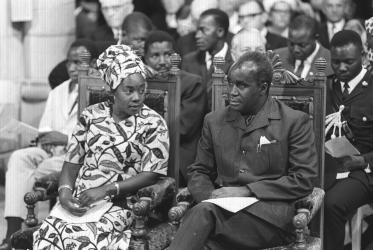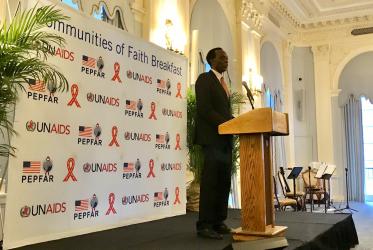Mostrando 1 - 20 de 32
03 Agosto 2021
Young Africans are eager to grapple with challenges
09 Enero 2020
“Ökonomie des Lebens” wird in Sambia durch ausländische Investoren erschwert
06 Septiembre 2017
In Zambia, foreign investors complicate “economy of life”
06 Septiembre 2017
Les investisseurs étrangers compliquent l'«économie de la vie» en Zambie
06 Septiembre 2017
Ökumenischer Kurs verknüpft Theologie und Wirtschaft
05 Septiembre 2017
GEM School: integrating theology and economics
05 Septiembre 2017
École GEM: comment concilier théologie et économie
05 Septiembre 2017
Zambia: “On HIV, we do not compete. We work together.”
20 Octubre 2016
Kenya: Voice of faith communities crucial in overcoming HIV
14 Octubre 2016





